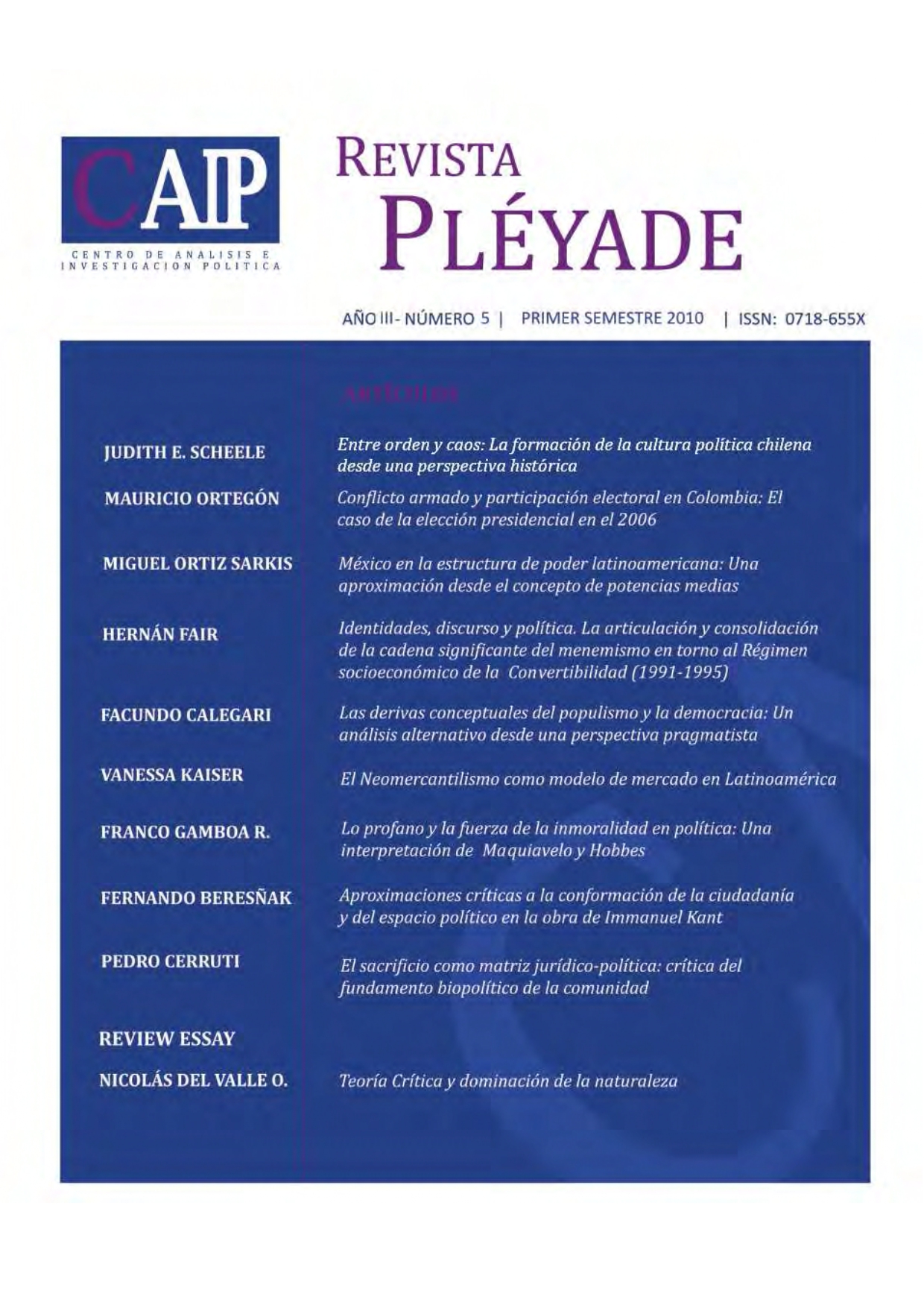
Published 2010-07-18
Keywords
- oligarchic states,
- elite accommodation,
- democratic capitalism,
- dual society
How to Cite

This work is licensed under a Creative Commons Attribution-NonCommercial 4.0 International License.
Abstract
The economic policies that the Washington Consensus brought, since the 90’s have not changed the Latin-American situation. Problems like the high levels of poverty, low investment in human capital, dependency of commodities and the extreme inequality of income, have been a constant from the colonial period. Because of the failure of neoliberal policies, voices have raised from the most diverse sectors, to accuse the defeat of liberalism. However, other economic models like the Industrialization by Substitution of Imports or the centralized planning of the economy, promoted in distinct historical moments by the Latin- American governments, neither attained important variations. The present article tackles this problematic from the perspective of the existence of mercantilism path dependence, present in the institutional reality of the Latin-American countries that originated during the colonial era. The general hypothesis sustains that if the mercantilist logics still have the power to drive the processes of decision making is not possible to refer to the reality of these countries from the optical of the neoliberalism, because we would be in presence of a neomercantilist model. This nourish of historical dynamics, although with some adaptations to the changes in the environmental conditions, produced by the globalization and circumscribed to the macroeconomic field.